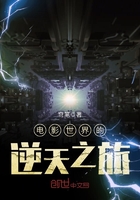This reversion to spectacular observances is not confined to the upper-class cults, although it finds its best exemplification and its highest accentuation in the higher pecuniary and social altitudes. The cults of the lower-class devout portion of the community, such as the Southern Negroes and the backward foreign elements of the population, of course also show a strong inclination to ritual, symbolism, and spectacular effects; as might be expected from the antecedents and the cultural level of those classes. With these classes the prevalence of ritual and anthropomorphi** are not so much a matter of reversion as of continued development out of the past. But the use of ritual and related features of devotion are also spreading in other directions. In the early days of the American community the prevailing denominations started out with a ritual and paraphernalia of an austere simplicity; but it is a matter familiar to every one that in the course of time these denominations have, in a varying degree, adopted much of the spectacular elements which they once renounced. In a general way, this development has gone hand in hand with the growth of the wealth and the ease of life of the worshippers and has reached its fullest expression among those classes which grade highest in wealth and repute.
The causes to which this pecuniary stratification of devoutness is due have already been indicated in a general way in speaking of class differences in habits of thought. Class differences as regards devoutness are but a special expression of a generic fact. The lax allegiance of the lower middle class, or what may broadly be called the failure of filial piety among this class, is chiefly perceptible among the town populations engaged in the mechanical industries. In a general way, one does not, at the present time, look for a blameless filial piety among those classes whose employment approaches that of the engineer and the mechanician. These mechanical employments are in a degree a modern fact. The handicraftsmen of earlier times, who served an industrial end of a character similar to that now served by the mechanician, were not similarily refractory under the discipline of devoutness. The habitual activity of the men engaged in these branches of industry has greatly changed, as regards its intellectual discipline, since the modern industrial processes have come into vogue; and the discipline to which the mechanician is exposed in his daily employment affects the methods and standards of his thinking also on topics which lie outside his everyday work. Familiarity with the highly organized and highly impersonal industrial processes of the present acts to derange the animistic habits of thought. The workman's office is becoming more and more exclusively that of discretion and supervision in a process of mechanical, dispassionate sequences. So long as the individual is the chief and typical prime mover in the process; so long as the obtrusive feature of the industrial process is the dexterity and force of the individual handicraftsman; so long the habit of interpreting phenomena in terms of personal motive and propensity suffers no such considerable and consistent derangement through facts as to lead to its elimination. But under the later developed industrial processes, when the prime movers and the contrivances through which they work are of an impersonal, non-individual character, the grounds of generalization habitually present in the workman's mind and the point of view from which he habitually apprehends phenomena is an enforced cognizance of matter-of-fact sequence. The result, so far as concerts the workman's life of faith, is a proclivity to undevout scepticism.
It appears, then, that the devout habit of mind attains its best development under a relatively archaic culture; the term "devout" being of course here used in its anthropological sense simply, and not as implying anything with respect to the spiritual attitude so characterized, beyond the fact of a proneness to devout observances. It appears also that this devout attitude marks a type of human nature which is more in consonance with the predatory mode of life than with the later-developed, more consistently and organically industrial life process of the community. It is in large measure an expression of the archaic habitual sense of personal status -- the relation of mastery and subservience -- and it therefore fits into the industrial scheme of the predatory and the quasi-peaceable culture, but does not fit into the industrial scheme of the present. It also appears that this habit persists with greatest tenacity among those classes in the modern communities whose everyday life is most remote from the mechanical processes of industry and which are the most conservative also in other respects; while for those classes that are habitually in immediate contact with modern industrial processes, and whose habits of thought are therefore exposed to the constraining force of technological necessities, that animistic interpretation of phenomena and that respect of persons on which devout observance proceeds are in process of obsolescence. And also -- as bearing especially on the present discussion -- it appears that the devout habit to some extent progressively gains in scope and elaboration among those classes in the modern communities to whom wealth and leisure accrue in the most pronounced degree. In this as in other relations, the institution of a leisure class acts to conserve, and even to rehabilitate, that archaic type of human nature and those elements of the archaic culture which the industrial evolution of society in its later stages acts to eliminate.














